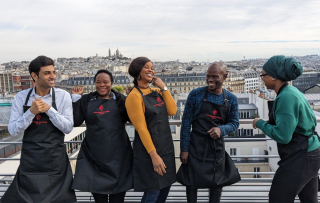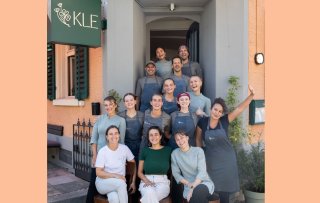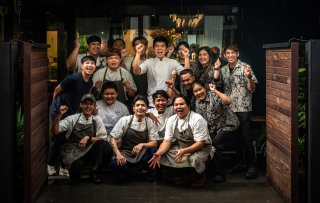In the food and hospitality world, everyone is talking about the ‘experience’. But what does this actually mean?
Everything that your guest hears, sees, tastes, feels and smells contributes to how they experience a particular product, environment and other people’s behaviour towards them. With experience 3.0, we focus on ‘feeling’. The guest essentially goes on a journey: from picking a destination to the moment they return home and write a review. All moments of the journey should be optimised to realise the ultimate experience and leave a lasting, positive impression.
First contact
Making a reservation is often the first moment a guest comes into contact with a company. Already during this first encounter, it’s possible to trigger and excite them. Make it so the guests can’t wait to drop by.
Possibilities
Not everyone enjoys making phone calls. Online reservations are becoming more common and guests make use of the option eagerly. But that is not the only alternative way to calling. Restaurant Lazy Bear in San Francisco is a great example of being innovative. They use a ticketing system because eating there is so special it feels like an event one would buy a ticket for. We’ll see more methods like this used in the future. Grant Achatz is working on a toolbox for bookings, so that more restaurants can embrace these new ways of making reservations.
Creating excitement
The Fat Duck in Berkshire, England knows exactly how to get its guests excited. Because it can take up to two months for a spot to open, guests are given a link to an interactive website built to represent the feel of eating at The Fat Duck. Once they’ve made a reservation, they just can’t wait for the real thing!
Be personal
Guests want to interact with people, not with brands or corporations. Nothing is more impersonal than sending an unsigned email. Make sure to communicate using the names of your hosts, giving guests a name to remember and something they can use when they arrive. The Holiday Inn in Amsterdam takes it a step further. Guests are connected with a staff member that share their specific interests, passions or hobbies. This creates genuine interest and higher potential for meaningful interaction.
Want to know more about food & psychology? Read the Food Inspiration Magazine.

























